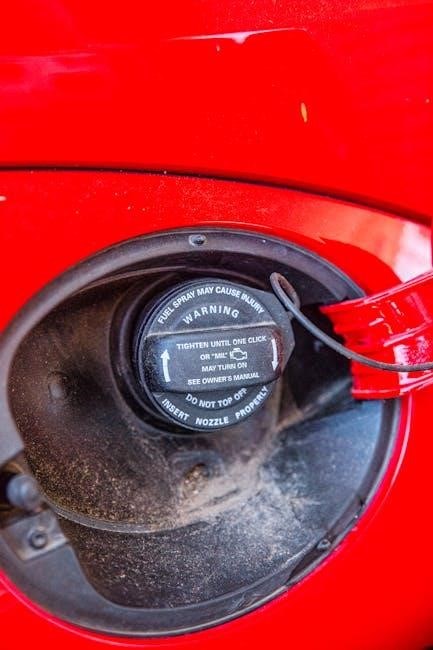The FP-31 form is the District of Columbia’s Personal Property Tax Return, used for annual reporting of personal property in business. It includes necessary forms and instructions for accurate tax filing.

What is the FP-31 Form?
The FP-31 is the District of Columbia’s Personal Property Tax Return, required for reporting personal property used in business within DC. It includes Form FP-31, FP-31P, and FP-129A, with detailed instructions for filing and payment, now exclusively electronic.
Who Must File the FP-31?
The FP-31 must be filed by individuals, corporations, partnerships, executors, administrators, guardians, receivers, and trustees who own or hold personal property in trust in the District of Columbia. This includes businesses and individuals using property for commercial purposes, such as rental property owners, freelancers, and contractors. The form applies to all entities with personal property in DC, ensuring compliance with local tax regulations. Filing is mandatory to report and pay taxes on such assets, with specific instructions provided in the FP-31 booklet. Electronic filing is now required through the MyTax.DC.gov portal.
Key Dates and Deadlines
The FP-31 Personal Property Tax Return must be filed annually by July 31st for the tax year beginning July 1st and ending June 30th. Late payments incur a 5% monthly penalty. Extensions for filing can be requested using Form FP-129A, but payment of the total tax due is still required by July 31st. Failure to meet deadlines results in penalties and interest, which must be paid to avoid further complications. The Office of Tax and Revenue emphasizes timely submissions to ensure compliance with District of Columbia tax regulations. Electronic filing through MyTax.DC.gov is now mandatory, streamlining the process and reducing errors. Proper planning and adherence to these deadlines are crucial for avoiding additional charges and ensuring a smooth filing experience.

Filing Process for FP-31
The FP-31 filing process involves online submission through MyTax.DC.gov, requiring account creation, document upload, and form completion, ensuring compliance with DC tax regulations.
How to File Online
Filing the FP-31 online is a streamlined process through the MyTax.DC.gov portal. First, create an account or log in if you already have one. Navigate to the “File the FP-31” section and select the appropriate tax year. Enter your personal and business details, including property information and depreciation values. Upload required documents, such as Schedule A-1 for books and reference materials. Review your entries for accuracy and proceed to payment. You can pay electronically using a bank account or credit card. Once submitted, you will receive a confirmation number as proof of filing. Ensure all steps are completed by the July 31 deadline to avoid penalties.
Required Documentation
To complete the FP-31 form, you must gather specific documentation. This includes Schedule A-1 for reporting books, DVDs, and reference materials used in your business. Schedule A-2 is required for other personal property items like equipment or vehicles. Additionally, you need to provide depreciation schedules, detailing the original cost and current value of assets. If claiming exemptions, such as those for Qualified High Technology Companies, include the QHTC-CERT certification. A payment voucher (FP-31P) is necessary if submitting payment with your return. For extensions, file Form FP-129A. Ensure all documents are accurate and complete to avoid delays in processing. Having these materials ready will streamline the filing process and ensure compliance with District of Columbia tax requirements.
Filing Deadlines and Extensions
The FP-31 Personal Property Tax Return must be filed annually by July 31st for the tax year beginning July 1st. If you cannot meet this deadline, you may request an extension by submitting Form FP-129A on or before July 31st. This form must include payment of the total tax due to avoid penalties. Late payments incur a penalty of 5% per month or portion of a month. Extensions are typically granted for up to 60 days, but interest will still accrue on unpaid balances. Ensure your return and payment are submitted electronically through MyTax.DC.gov by the extended deadline to comply with District of Columbia tax regulations. Failure to meet these deadlines may result in additional penalties and interest charges. Plan accordingly to avoid late filing complications.

Instructions for Completing the FP-31 Form

The FP-31 form guides individuals and businesses in reporting personal property details accurately. Ensure all sections are filled correctly, including depreciation and valuation, to comply with DC tax regulations.
Personal Information and Business Details
The FP-31 form requires accurate personal and business information to ensure proper identification and tax processing. Individuals must provide their full name, address, and contact details, while businesses should include their legal name, EIN, and business type. This section also asks for information about the property’s location and use, ensuring compliance with District of Columbia tax regulations. Accurate details are crucial for verifying ownership and calculating tax liability. Failure to provide complete or correct information may result in delays or penalties. Ensure all fields are filled out thoroughly to avoid issues during processing. This section is foundational for the rest of the form, as it establishes the taxpayer’s identity and the basis for reporting personal property.
Reporting Personal Property
When reporting personal property on the FP-31 form, taxpayers must list all tangible property used in their business or profession. This includes items like machinery, equipment, furniture, and vehicles. Property held for rental or personal use, such as rental real estate furnishings, must also be reported. The form requires detailed descriptions, original costs, and current values of each asset. Depreciation is calculated based on IRS guidelines, with most property depreciated up to 75% of its original cost. Schedule A-1 is used for reporting books, DVDs, and other reference materials. Accurate reporting ensures compliance with District of Columbia tax laws and avoids penalties. Proper valuation and categorization of property are essential for correct tax assessment. Ensure all items are listed thoroughly to reflect the true value of your business assets.
Depreciation and Valuation
Depreciation and valuation are critical components of the FP-31 form. Taxpayers must report the original cost of each asset and its accumulated depreciation. Depreciation is generally based on IRS guidelines, with most property depreciated up to 75% of its original cost. Assets must be valued at their fair market value as of July 1 of the tax year. The District of Columbia requires accurate reporting of depreciation to ensure proper tax assessment. Failure to comply with depreciation limits may result in penalties. Detailed records of each asset, including purchase dates and costs, must be maintained to support depreciation claims. Proper valuation ensures fair assessment of personal property taxes, avoiding underreporting or overreporting of assets. Accurate depreciation calculations are essential for compliance with DC tax regulations.
Payment Methods and Vouchers
The FP-31 form allows for various payment methods to settle personal property taxes. Taxpayers can pay online via MyTax.DC.gov using an e-check or credit card. Payments can also be made by mailing a check or money order with the FP-31P Payment Voucher. The voucher must include the taxpayer’s name, account number, and tax year. Payments should be mailed to the Office of Tax and Revenue at P.O. Box 7862, Washington, D.C. 20044-7862. For electronic filers, payments are due by July 31, while mailed payments must be postmarked by the same date. Taxpayers unable to pay in full may apply for a payment plan online. Late payments may incur penalties and interest. Always retain payment confirmation for records.

Exemptions and Deductions
The FP-31 form allows for exemptions and deductions, particularly for Qualified High Technology Companies (QHTC). Other exemptions apply to specific businesses or properties meeting DC criteria.
Qualified High Technology Companies (QHTC)
Qualified High Technology Companies (QHTC) are eligible for specific exemptions under the FP-31 form. These companies, engaged in activities like software development, data processing, or biotechnology, may qualify for reduced tax rates or exemptions on certain personal property. To claim this exemption, businesses must submit the QHTC-CERT certification along with their FP-31 return. The certification verifies the company’s eligibility based on criteria such as the nature of its activities and the percentage of revenue derived from high-tech services. The exemption aims to encourage innovation and growth in the technology sector within the District of Columbia. Companies must file by the deadlines to avoid penalties and ensure their eligibility is maintained. For detailed criteria, refer to the official DC tax guidelines. This exemption is a valuable incentive for qualifying businesses.
Other Exemptions and Special Cases
Beyond QHTC, other exemptions and special cases apply under the FP-31 form. Certain assets, such as property used for charitable or educational purposes, may qualify for tax exemptions. Businesses with minimal personal property value may also be exempt from filing. Additionally, special cases include extensions for filing, which can be requested using Form FP-129A. Late payments incur penalties of 5% per month. Depreciation limits apply, with most property not depreciated beyond 75% of its original cost. These provisions aim to simplify compliance and reduce burdens for eligible filers. For specific details, refer to the DC tax code and official guidelines. These exemptions and special cases ensure fairness and flexibility in the filing process.

Penalties and Interest
Failure to pay on time results in a 5% monthly penalty. Interest accrues on unpaid taxes, emphasizing the importance of timely filing to avoid additional fees.
Late Payment Penalties
Late Payment Penalties
Late payment penalties for the FP-31 form are imposed at a rate of 5% per month or portion of a month on unpaid taxes. This penalty is calculated based on the total amount of tax due and cannot exceed 25% of the total tax liability. If the payment is not made by the deadline, the penalty is applied automatically. Additionally, interest accrues on both the unpaid tax and any penalties, further increasing the total amount owed. It is crucial to file and pay on time to avoid these penalties. Extensions may be granted under certain conditions, but late payments will still incur penalties unless explicitly waived. Proper planning and timely submission are essential to minimize financial consequences.
Interest Calculations
Interest on unpaid FP-31 taxes is calculated based on the total amount of tax due and begins accruing from the original due date of the return. The interest rate is determined by the District of Columbia’s statutory rate and is applied monthly. Late payment penalties and interest are calculated separately but are often combined when assessing the total amount owed. The interest calculation compounds monthly, meaning unpaid balances grow over time. Taxpayers are encouraged to file and pay on time to avoid additional charges. If eligible, requests for penalty or interest waivers must be submitted formally and approved by the Office of Tax and Revenue. Prompt payment ensures compliance and prevents further financial obligations.

Electronic Filing and Payment
Electronic filing and payment for FP-31 is done through MyTax.DC.gov, offering a secure and efficient way to submit returns and payments. The system allows scheduling payments and provides immediate confirmation.
Creating a MyTax.DC.gov Account
Creating a MyTax.DC.gov account is essential for electronic filing and payment of the FP-31 form. Visit the MyTax.DC.gov website and click on “Create an Account.” Enter required information, such as name, email, and password. Verify your account through the confirmation email sent by the system. Once logged in, navigate to the FP-31 section to access the form and begin the filing process. Ensure all personal and business details are accurate to avoid delays. The account also allows users to view filing history, manage payments, and receive notifications. Secure your account with a strong password and keep login credentials confidential to maintain account security.
Navigating the Online Portal
Navigating the MyTax.DC.gov portal is straightforward for filing the FP-31 form. Log in to your account and select the “FP-31 Personal Property Tax Return” option. The portal guides you through each section, prompting you to enter required details such as business information, property valuation, and depreciation. Use the “Help” icons for clarification on specific fields. After completing all sections, review your entries for accuracy. Once satisfied, submit the form electronically. The portal also allows you to save your progress and return later. Ensure all required documentation is uploaded, and payments are made through the secure payment gateway. Confirmation of submission and payment will be provided upon completion.
Troubleshooting Common Issues
When filing the FP-31 form online, common issues may arise, such as login problems or form submission errors. If you encounter difficulties logging in, use the “Forgot Password” feature or ensure your account is fully registered. For form submission issues, verify that all required fields are completed and data is entered correctly. Payment failures may occur due to incorrect bank details; double-check your payment information. If errors persist, clear your browser cache or try a different browser. For technical issues, refer to the MyTax.DC.gov help section or contact support. Ensure your internet connection is stable and that pop-up blockers are disabled, as these can interfere with the portal’s functionality. Addressing these common issues promptly will help ensure a smooth filing process.
The FP-31 form is a critical tool for reporting personal property tax in the District of Columbia. Understanding the instructions and requirements ensures compliance with tax obligations. The guide provides detailed steps for filing online, required documentation, and key deadlines. It also highlights exemptions, payment methods, and penalties to avoid. By following the instructions carefully, filers can complete their returns accurately and efficiently. The District’s online platform, MyTax.DC.gov, simplifies the process, offering a user-friendly experience. Timely filing and payment are essential to avoid penalties and interest. For additional support, refer to the official resources and troubleshooting tips provided. Proper completion of the FP-31 ensures adherence to tax laws and supports business operations in the District of Columbia.
